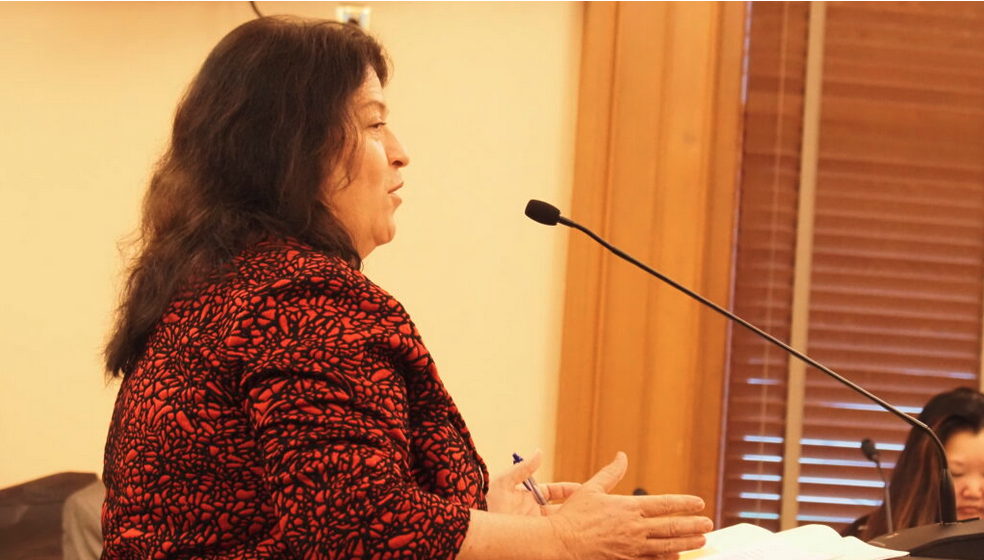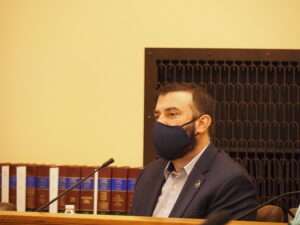
By NOAH TABORDA
Kansas Reflector
TOPEKA — At an Overland Park nursing home, Rita Headley has witnessed many elderly Kansans without access to reliable care and unable to live with dignity.
Headley, who worked for 30 years at a nursing home in Fort Scott in a variety of roles, said she knows the treatment residents should receive, and the Overland Park Center for Rehabilitation and Nursing has not provided that. In many cases, this was because of a staffing shortage that sees only one or two aides each shift on her floor, Headley said.
Often, food served is cold and staff unavailable to help heat it for her. Headley said sometimes she has gone months without having her hair washed and has even had to cut back on liquid intake so she would not have to rely on staff to go to the bathroom as often.
“Besides being short staffed, they are often low on supplies, and have poor communication between staff and administration,” Headley said. “They operate using agency nursing staff who do not know other staff or residents. I have had bad experiences with them being too rough and argumentative.”
Headley and several other long-term care facility residents and family members were represented Tuesday before the Kansas Senior Care Task Force by Camille Russell, the Kansas ombudsman for those in these facilities. Russell and other private citizens appearing in person expressed concerns with conditions described in some of these facilities.
Another resident Russell represented — Cerena Mitchell of Lakepoint Wichita — provided a list of instances in which she received inadequate treatment. Most concerning to her were several unreported falls and vermin in her dwelling.
In the first few instances where she fell and used a call light system to signal for help, it took between 45 minutes and an hour and 45 minutes for staff to respond. In a more serious case, where Mitchell broke in her left foot, the facility said she did not pay enough money to have ice delivered to the room and that the price for delivery of room trays would be raised to $7.
“I hobbled with my walker down about once a day,” Mitchell said. “When I entered this facility they had a waiting list of people wanting to rent the one-bedroom apartments in this hall, and now most are empty.”
Mitchell also noted issues with heating during the winter, cold food, roaches, and general issues with cleanliness.
Not every facility or every resident who agreed to share their experiences with Russell had negative things to say, but the majority expressed discomfort or dismay with the facilities. She put the issues she had heard as the ombudsman into perspective for legislators on the task force by explaining how easily it could be their loved ones suffering or even one day themselves in these situations.

Diagnosed with cancer the same week she took over as ombudsman, Russell was told shortly after that a blood pressure issue could result in a stroke. Her thoughts immediately turned to the long-term care residents who may not have the necessary support to deal with these issues.
“My mind immediately flashed to that person who has a stroke in a nursing home,” Russell said. “It could be any of us, and I was afraid and I am rarely afraid. There are good people working in nursing homes. There are good people owning and running nursing homes. But we can do better.”
Rep. Jarrod Ousley, a Merriam Democrat, pondered how COVID-19 has exacerbated the situation and where and what the state could do to rectify some of these shortcomings.
“This doesn’t seem to be isolated in any one home or in a region of the state,” Ousley said. “This seems to be spread across wide areas. … Where do we go from here?”





